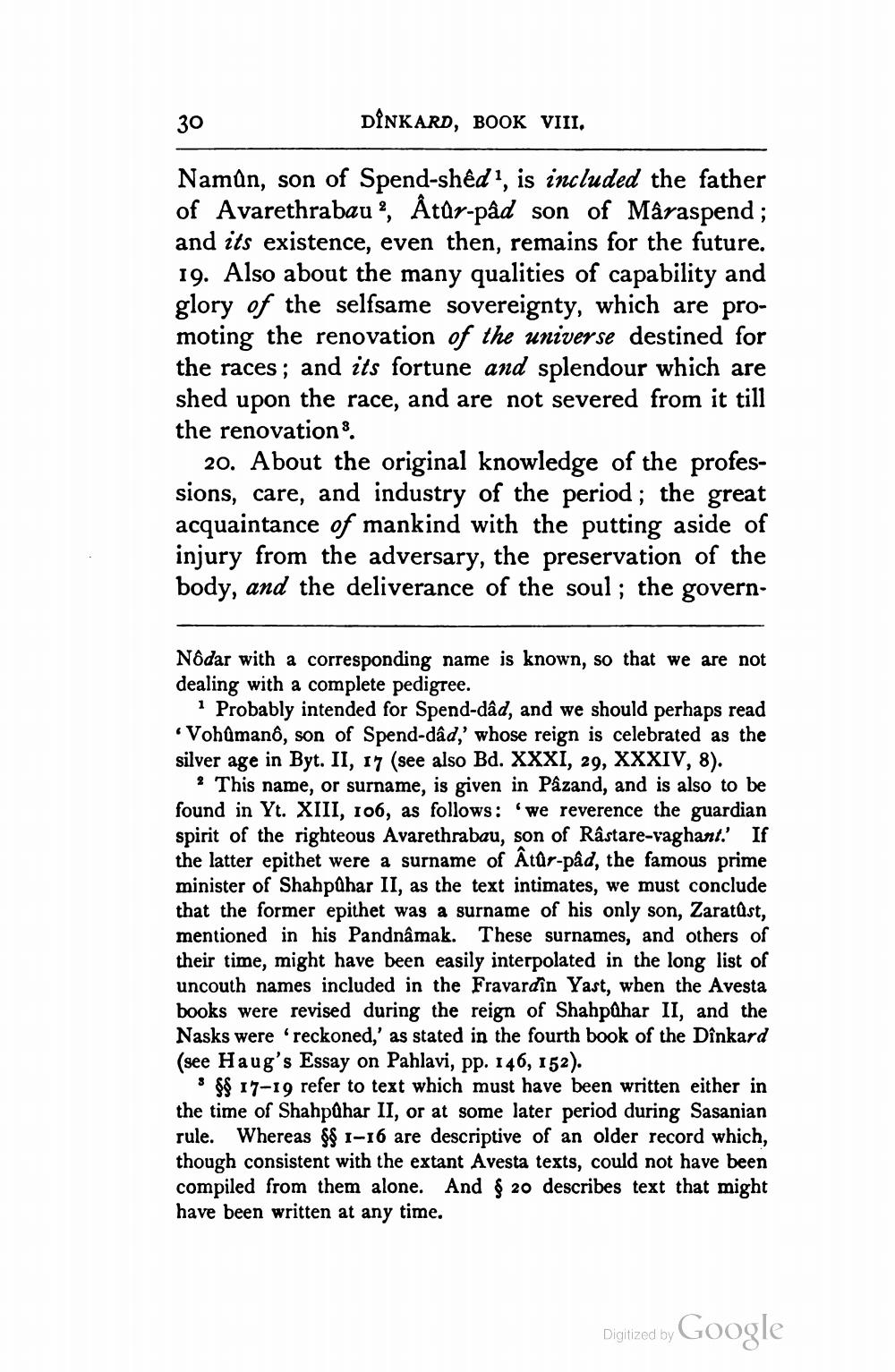________________
30
DÎNKARD, BOOK VIII.
Namun, son of Spend-shed", is included the father of Avarethrabau ?, Åtūr-påd son of Mâraspend; and its existence, even then, remains for the future. 19. Also about the many qualities of capability and glory of the selfsame sovereignty, which are promoting the renovation of the universe destined for the races; and its fortune and splendour which are shed upon the race, and are not severed from it till the renovation
20. About the original knowledge of the professions, care, and industry of the period; the great acquaintance of mankind with the putting aside of injury from the adversary, the preservation of the body, and the deliverance of the soul; the govern
Nôdar with a corresponding name is known, so that we are not dealing with a complete pedigree.
? Probably intended for Spend-dâd, and we should perhaps read Vohumano, son of Spend-dâd,' whose reign is celebrated as the silver age in Byt. II, 17 (see also Bd. XXXI, 29, XXXIV, 8).
? This name, or surname, is given in Pâzand, and is also to be found in Yt. XIII, 106, as follows: 'we reverence the guardian spirit of the righteous Avarethrabau, son of Râstare-vaghant. If the latter epithet were a surname of Atûr-pâd, the famous prime minister of Shahpühar II, as the text intimates, we must conclude that the former epithet was a surname of his only son, Zaratûst, mentioned in his Pandnâmak. These surnames, and others of their time, might have been easily interpolated in the long list of uncouth names included in the Fravardin Yast, when the Avesta books were revised during the reign of Shahpühar II, and the Nasks were reckoned,' as stated in the fourth book of the Dînkard (see Haug's Essay on Pahlavi, pp. 146, 152).
$ $$ 17-19 refer to text which must have been written either in the time of Shahpūhar II, or at some later period during Sasanian rule. Whereas $$ 1-16 are descriptive of an older record which, though consistent with the extant Avesta texts, could not have been compiled from them alone. And § 20 describes text that might have been written at any time.
Digitized by Google




